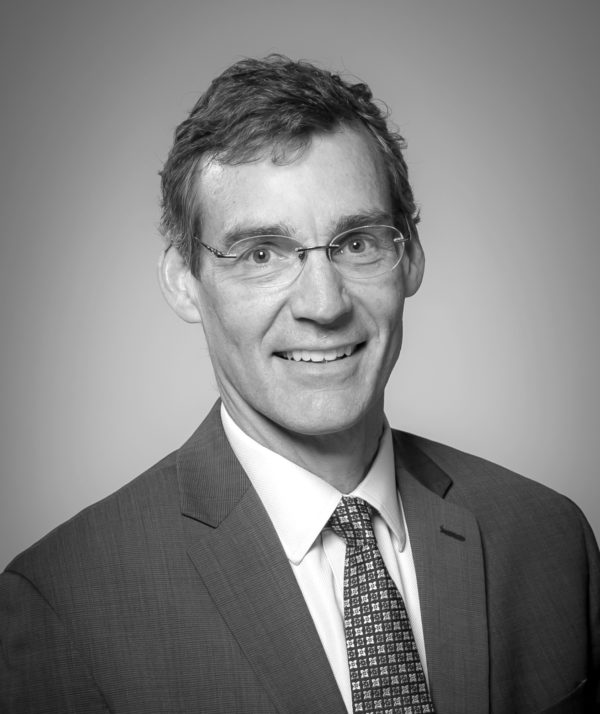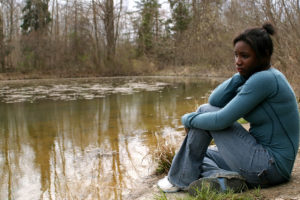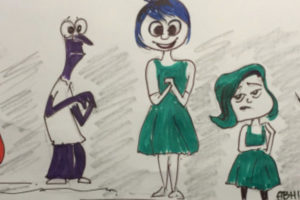Can the empathy and compassion of doctors and health care professionals actually improve health outcomes for their patients? This is one of many questions that drives David Rakel, a medical doctor, researcher and longtime friend of the Center for Healthy Minds, who shares his experiences developing models of compassionate care and empowering patients. Rakel’s recent book, The Compassionate Connection: The Healing Power of Empathy and Mindful Listening, explores how medical professionals can integrate compassion, empathy and mindfulness into practice to transform health care and improve outcomes for patients.
Rakel is currently a faculty member at the University of New Mexico School of Medicine and is chair of the Department of Community & Family Medicine. He previously worked at the University of Wisconsin–Madison where he founded the University of Wisconsin Integrative Medicine Program within the UW Department of Family Medicine and Community Health. He visited the Center to discuss new developments in his field.

What made you start thinking about compassionate care?
David Rakel: It was mainly my patients’ stories and the disconnect between an algorithmic approach to disease and suffering. Disease can be treated with an algorithm, but health requires a broader awareness of each individual. In other words, each person has a unique background and story. A one-size-fits-all approach or an algorithm to treat disease wasn’t serving their needs. We need science to guide us, but as many have noted medicine is an art between two people. The patient’s story should always dictate what we do — the answer for you might be different than the answer for someone else even if your disease algorithms are the same. That’s why we need to be malleable and let the patient drive us.
A lot of health care is passive, meaning we just throw things at what we perceive to be the problem. On the other hand, healing is active. Healing needs to come from within the patient and it needs to influence healthy behaviors. In this light, the role of the practitioner — the doctor, nurse, or other medical professional — is to become a therapeutic tool for healing. The data supports that the ceremony between two people can significantly enhance healing and help our passive treatments become more effective. This has been found in treating pain and anxiety, the common cold and irritable bowel syndrome.
“The role of the practitioner — the doctor, nurse, or other medical professional — is to become a therapeutic tool for healing.”
What does compassionate care actually look like?
I’m reminded of a really wonderful oncology nurse who is able to practice this art in a way that empowers people. She shares her own experience with breast cancer and connects with patients by sitting them down, offering a hand, and saying, “We’ll get through this together.” Her story is powerful because it shows how we can enhance that patient-practitioner connection to reduce fear, increase positive expectation and facilitate hope. When a woman is faced with a cancer, having a confident, kind person who has concurred this journey at your side providing compassionate support can make a significant difference. And if that person uses the following tools, the effects can be enhanced.
There’s an acronym – “PEECE” – to remember the essential ingredients that research has shown to enhance the effects of compassionate care:
Positive Prognosis
Education
Empowerment
Connection
Empathy
The care and intention behind the healer isn’t just one part of the equation — it’s the whole ceremony — one that requires trust. One of the best representations for trust I have seen is:
Trust = Competency x Intimacy / Degree of Risk
For someone dispensing acupuncture to a patient, for instance, you can’t just know where to place the acupuncture needles, you have to be well-trained in the art of acupuncture which is competency. Intimacy means you connect with that other human being in a meaningful way.
We looked at this in the short-term in a study where we randomly assigned patients who came into the doctor for the common cold to two groups – one with a standard physician visit and the other an “enhanced” physician visit where the doctor displayed more empathetic behavior, including listening and showing concern as patients told their full story and found ways to empower them to take control over their care. We found that patients who received care from the more empathetic doctors had less severe symptoms that lasted for a shorter period of time. This really suggests that the quality of the care can affect the patients’ outcomes.
For minor conditions like earaches, your body will probably heal itself whether you have a compassionate connection or not. But if you have an autoimmune disease with recurring headaches, the competency of your doctor multiplied by the intimacy you feel with them as another human being has a bigger impact, so it’s even more important. As a doctor, I think trust is very important and can even make you more effective.
When you get to know the person who has the disease, you’re less fearful of the disease and you’re more likely to make an accurate diagnosis. There is less need to order more tests or medicines because fear is reduced when two people come together through a dialogue that explores meaning. This gives both energy and the healing goes both ways.
"The ceremony between two people can significantly enhance healing and help our passive treatments become more effective."
What role can a growth mindset and acceptance play in compassionate care?
Something a psychologist told me once really stuck with me. When someone sees themselves as Person A and they get a disease, they turn into a different person – Person B. They always want to get back to Person A, but that person no longer exists because this disease or whatever they’re going through when they’re Person B has changed them. The question is: How do we help Person B get to Person C who has wisdom of authenticity, of radical acceptance, to really listen to whatever is most meaningful no matter what outcome?
Some of the most powerful experiences I’ve ever had in this work is sitting with people who are dying because they turn towards what matters: I have so much time to live, how do I invest in what matters?
-Interview conducted and edited by Marianne Spoon & Brita Larson






